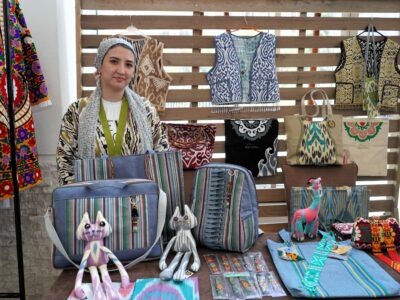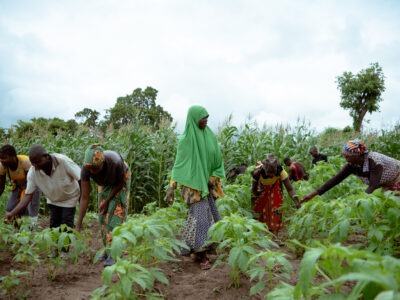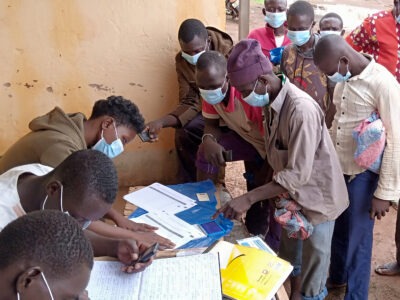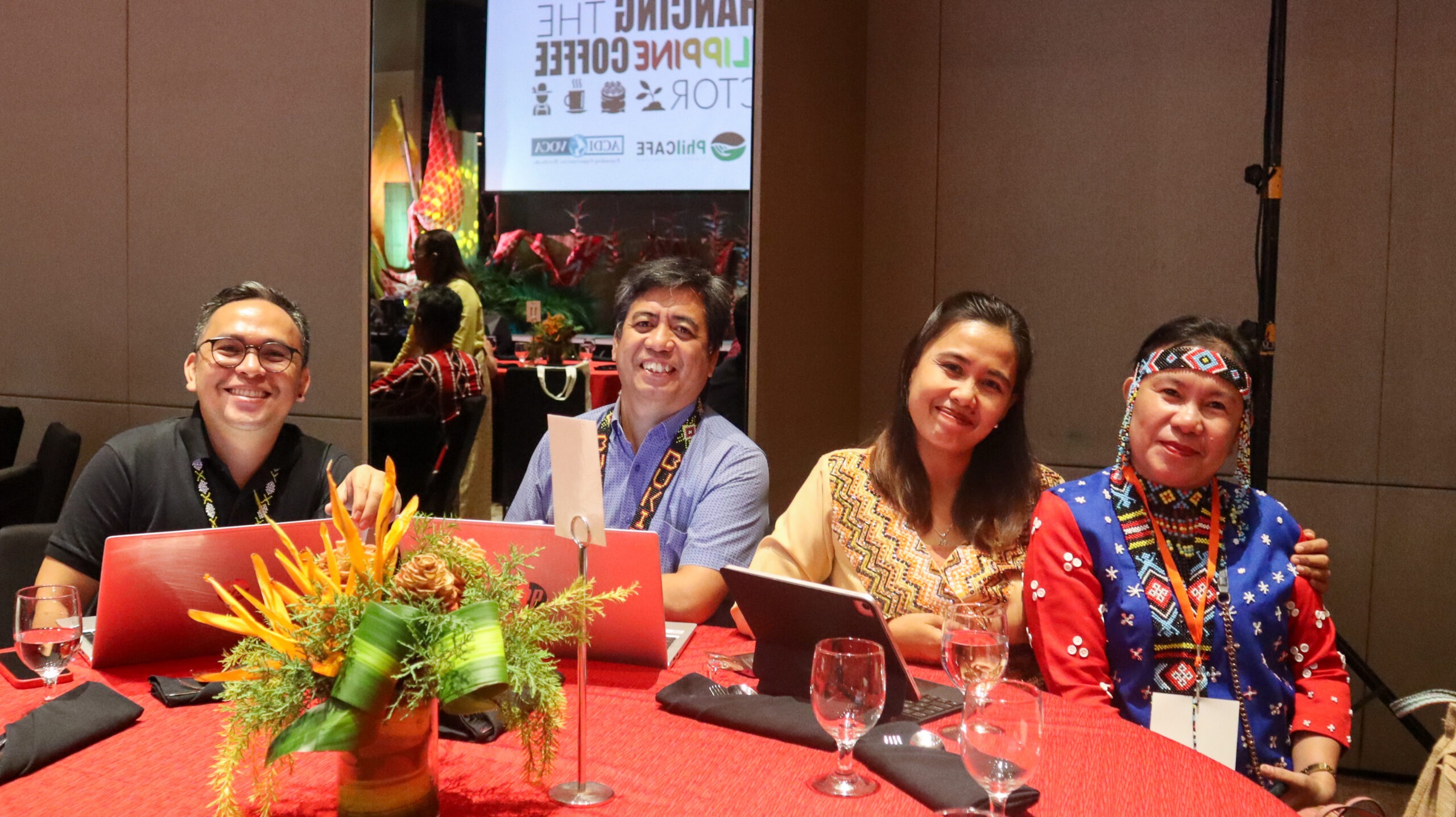
As a champion of Collaborating, Learning, and Adapting (CLA), ACDI/VOCA prioritizes bringing together partners to discuss what works, what doesn’t, and what needs to change within a global development program. We recently put the CLA approach to practice at a learning event to wrap up a five-year program called Philippines Coffee Advancement and Farm Enterprise (PhilCAFE) that concludes this year. PhilCAFE, which is funded by the United States Department of Agriculture and implemented by ACDI/VOCA, was an investment in the Philippine coffee sector that led to $15-million worth of coffee being sold to international markets.
In September, PhilCAFE convened more than 160 stakeholders from across the coffee sector for a two-day learning event in Davao City to capture the program’s successes and discuss critical issues going forward. Despite concluding this year, PhilCAFE’s progress will be carried on by its partners, which include members of the Philippine Coffee council, state universities and colleges, and others.
The inclusive event featured more than 55 coffee producers, representing indigenous and non-indigenous populations, women producers, and youth producers. It also brought together nursery owners, input suppliers, buyers, roasters, coffee shop owners, and financial institutions as well as representatives from other donor-funded programs and the government, such as USDA’s Agricultural Counselor from the US Embassy in Manila.
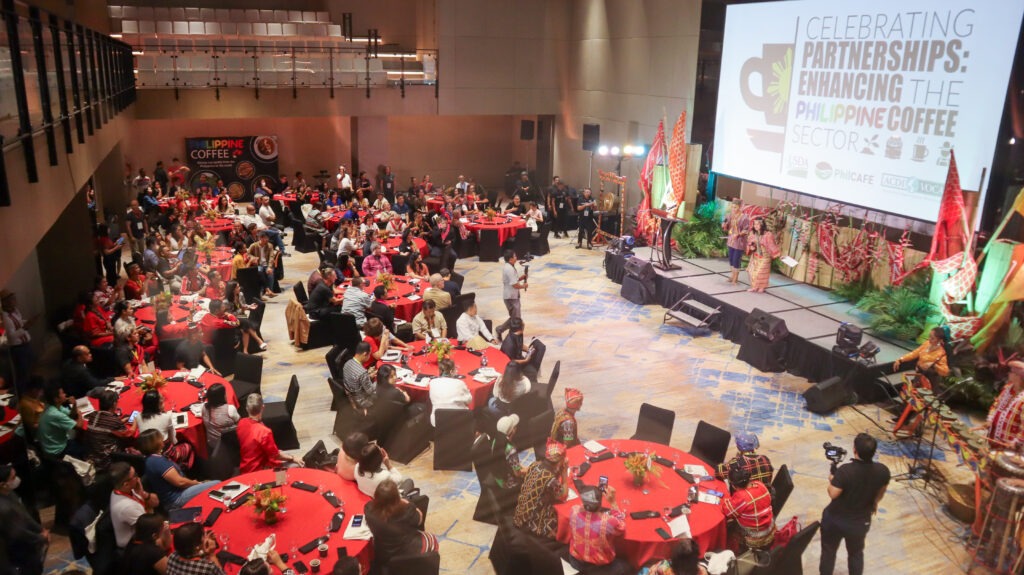
Adopting Good Agricultural Practices
Before PhilCAFE’s support, most coffee farmers stripped their trees, did not use good agricultural practices (GAP), and focused solely on commodity coffee production. (In fact, most farmers themselves consumed instant coffee.) Women and youth had minimal roles in the sector. PhilCAFE promoted more adoption of GAP, which improved both the quantity and quality of coffee (fine and specialty). PhilCAFE also worked with youth clubs to promote young people’s access to information about GAP. Now, farmers who worked with PhilCAFE have begun consuming high-quality, brewed coffee, and more youth are engaged in the sector.
Improving Post-Harvest Handling
Training on proper post-harvest handling was critical to improving the quality of Philippine coffee, as was proven by the many awards it began to receive at national and international coffee expos. When PhilCAFE introduced elevated drying beds and manual sorting, more women in particular, began taking on jobs in the post-harvest handling process, representing an important shift in women’s participation in off-farm opportunities beyond agricultural production.
Access to Finance
Because the risks are high, some financial institutions in the Philippines would rather pay a fine than lend to agricultural activities, even if mandated to do so. PhilCAFE intervened to help create incentives for investment. Training coffee farmers in GAP helped to build the confidence of financial institutions by guaranteeing more consistency in coffee quality. PhilCAFE also facilitated agreements between these institutions and buyers and farming cooperatives, ensuring sustainable relationships and accountability. Now, the opportunity exists to expand financing from coffee producers to enterprises, such as roasters and coffee shops.
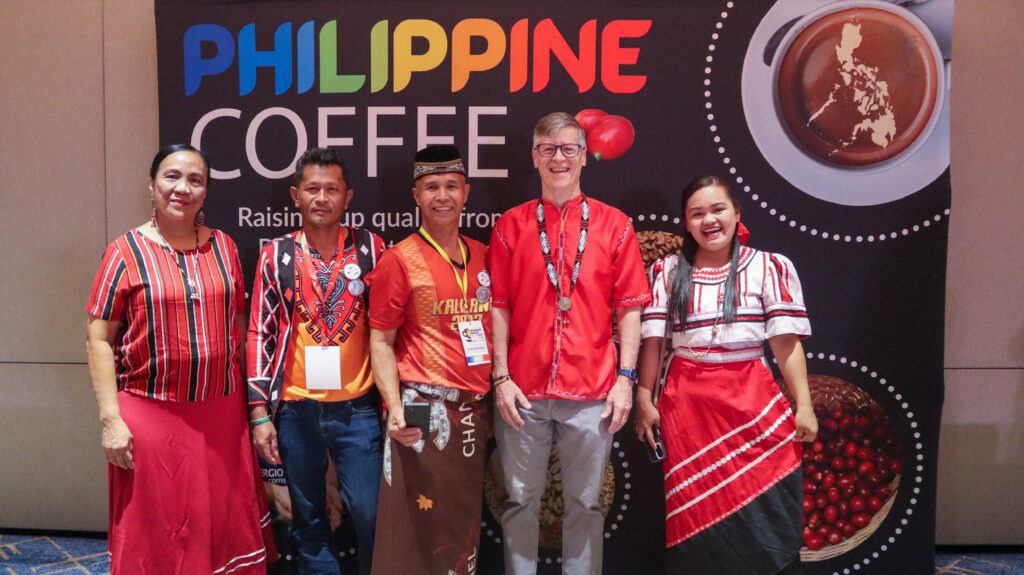
Marketing and Producer Organizations
The learning event revealed that mutual understanding of quality among all stakeholders is critical. Contracts and other stipulations must be clear and transparent between buyers and sellers, creating space for negotiations. And establishing clear communication and professionalizing coffee businesses was also key, especially from the producer’s perspective. Creation of a national regulating body to manage compliance (i.e., pricing and contracts) could be a recommendation, identified by participants at the event, for the future.
Governance
Despite events like the Philippine Quality Coffee Competition (PCQC), the Philippine Coffee Expo (PCE), and the Specialty Coffee Association (SCA) Expo, a lack of sector-level organization to represent the industry remains. Coffee councils play an important role in this but need stronger organization, recognition from their local bodies, and accountability for implementing the Philippine Coffee Roadmap, a nation-wide initiative.
State universities and colleges praised major changes thanks to PhilCAFE, such as the creation of nurseries, demo farms, cupping labs, coffee centers, and quality planting materials. They also noted enhanced farming skills among students thanks to extension programs, more students engaged in coffee research, more academic programming and curriculum related to coffee. Going forward, partnering schools aim to connect more with the private sector, institutionalize coffee cupping labs and research and innovation centers, and make extension programs sustainable and ongoing.
Looking to the Future
Moving forward, PhilCAFE partners identified three goals they will continue striving for—the first and most important being increased production and improved quality. Most coffee is still imported in the Philippines, so tremendous potential for growth exists. Though there’s no shortage of demand for Philippine coffee, the second goal is to continue driving future demand, particularly for quality coffee and shifting local consumer preferences away from instant coffee. Lastly, the third goal is to further investment and government support of the industry.
Learn more about Philippines Coffee Advancement and Farm Enterprise (PhilCAFE).
Watch a video on PhilCAFE’s impact over five years.
Hear from Filipino coffee sector actors.
Watch a recap video of the learning event.

